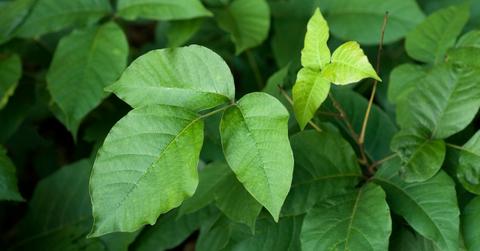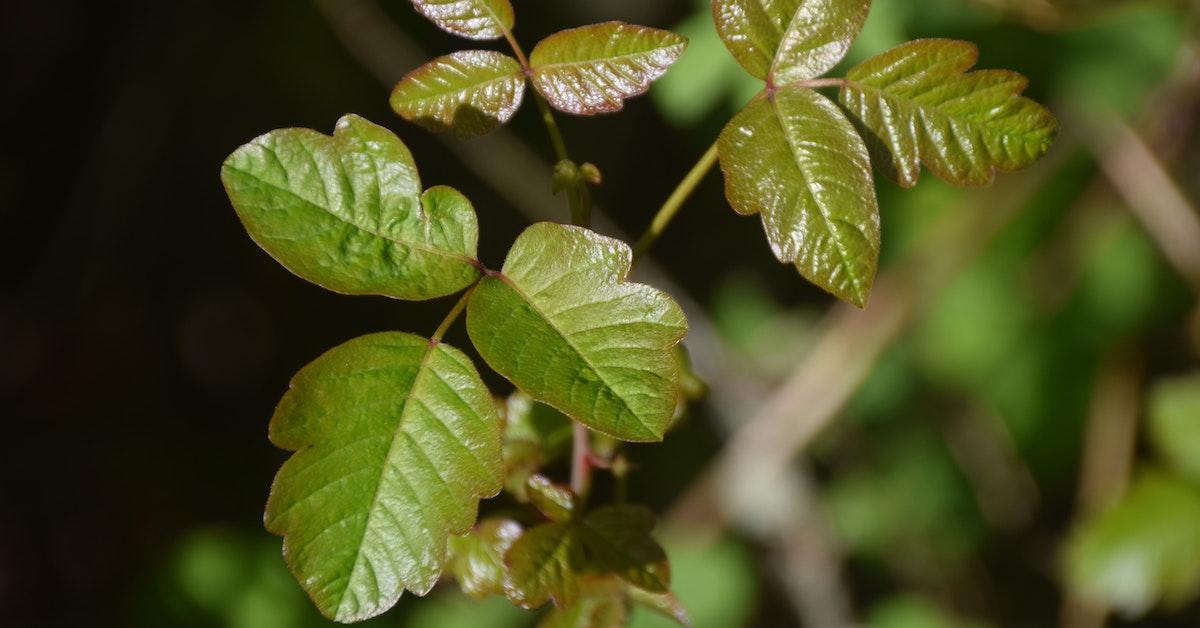Poison Ivy Is Flourishing — And Getting Itchier — Thanks to the Climate Crisis
Published July 19 2021, 12:43 p.m. ET

There’s nothing pleasant about poison ivy — and the perilous plant is only getting more powerful.
As noted recently by JSTOR Daily, a number of studies in recent years have shown how climate change is affecting poison ivy. As the climate crisis rages on, poison ivy, which about 85 percent of Americans are allergic to, has actually been growing more, becoming stronger, and getting itchier.
Poison ivy, also known as Toxicodendron radicans, has actually been on this trajectory for decades. According to Grist, the first study looking at this was published in 2006 by Duke University.
The researchers — Jacqueline E. Mohan, Lewis H. Ziska, William H. Schlesinger, Richard B. Thomas, Richard C. Sicher, Kate George, and James S. Clark — were curious how increasing levels of CO2 in the atmosphere could affect poison ivy. So, over a six-year period, they put their hypothesis to the test, and exposed poison ivy to increased CO2 levels.
In the end, they found that the extra CO2 affected poison ivy in a few ways: its growth rate increased; its population biomass (the amount of the plant in the areas studied) increased; its rate of photosynthesis increased; its water use became more efficient; and, most interestingly, the power of the plant’s urushiol increased. Urushiol is an oily sap found in poison ivy — it’s essentially what makes poison ivy itchy. So basically, poison ivy is getting (and has gotten) itchier.
And a year later, the researchers published a followup study, for which they tested how poison ivy leaves responded to four different CO2 levels: what they were during the mid-1900s, the then-current levels (2007), and what they were projected to be in 2050 and 2090. They found that as CO2 continues to increase in the atmosphere, poison ivy’s spread rate and urushiol production will grow.
Not only are these findings worrisome in regards to public health, but poison ivy’s growing power could have a few other negative impacts on the planet.
“When you suddenly change the resources — light, water, food — not every plant species responds the same way, and you’ll have winners and losers,” USDA plant physiologist Lewis Ziska told Everyday Health in 2019. “In this case, with the increasing abundance of poison ivy, the woody vines begin to take over and cause increased tree mortality and reduced tree regeneration in the forest.” JSTOR Daily believes that if poison ivy continues to grow at increasing rates, it could become a challenge in terms of forest management.
Ziska also noted that warming temperatures have also caused poison ivy vines to expand north into Canada.
Several more studies on the relationship between the climate crisis and poison ivy have come in the 15 years since Duke debuted the above research, as noted by Grist. For instance, a Harvard University study published in January 2021 found that poison ivy is more common in areas that are frequented by humans, since poison ivy tends to thrive in sunny areas (humans love the sun, of course) that don't have too many other plants (human disturbances, such as paving hiking trails, has helped make areas more barren and therefore more susceptible to poison ivy).
And as carbon emissions continue to rise all around the world, poison ivy’s effects may only become worse. This is just one more reason why we need world leaders to implement stricter restrictions on fossil fuels, animal agriculture, and other industrial activities that cause immense emissions. In the meantime, you may want to use extra caution when in any areas where poison ivy might be growing.
